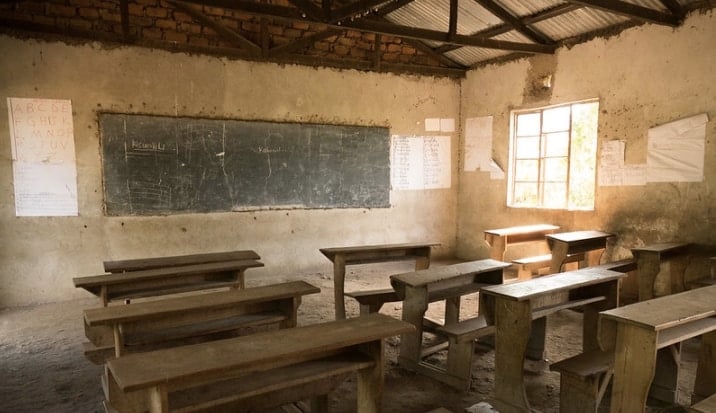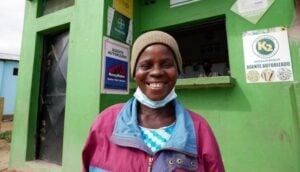The disruption will be felt long after the immediate crisis has passed and schools reopen and will be particularly serious in low-income countries across Africa, Asia and the Middle East. The evidence shows that disruptions to schooling due to things such as pandemics can cause:
- continued negative impacts on student enrolment and retention in school
- negative impacts on the cognitive, academic and socio-emotional development of students
- stalled or even reversed learning gains in affected regions
- reduced educational attainment will impact some groups more than others, for example, marginalised children, girls, children with disabilities, and those in refugee and internally displaced communities
We believe technology — when paired with a high-quality curriculum delivered by skilled and supported teachers — will have an important role in helping to make sure learning can continue. We know that there are many great ideas out there aiming to reach new contexts or communities, pivot their product to be more relevant to this crisis or scale much quicker than they ever thought possible in response to the crisis.
However, there is a range of barriers that currently prevent these initiatives from moving quickly and with impact, these include:
- identifying the right business model and path to scale to get from a proof of concept to mainstream adoption
- lack of a formalised network of support to provide advice, knowledge, collaboration or partnerships around a number of areas from impact measurement to implementation
- access to the resource needed to scale rapidly, from teachers to software developers
- support to gain government endorsement
- funding to grow and deliver at speed
If these initiatives are to have a real impact on learning it needs the focus and coordinated effort of experts and funders around the globe. That’s why we have launched a call for tech-focused ideas to respond to the learning emergency caused by COVID-19 school closures in low- and middle-income countries. We will identify the most promising ideas and connect them to the financial and technical support needed to scale. The call for ideas is a collaboration between EdTech Hub, mEducation Alliance, and Global Innovation Exchange.
We are looking for ideas that do not just put a plaster over the problem but can strengthen the education system in the long term. In order to effectively tackle the problem now, and reduce the long term consequences of the crisis, this is what we will be considering when selecting EdTech initiatives to support:
- Will they effectively support the communities most in need? Before COVID19 low-income countries and specific communities across Africa, Asia and the Middle East were already suffering a global learning crisis. School closures will only exacerbate this problem leading to a much longer path of recovery. How can we help mitigate this now? Our focus will be the most marginalised learners such as girls, those with disabilities and those in internally-displaced and refugee communities.
- Do they already have some proof of impact? We will be looking for ideas with existing evidence of impact but also proven concepts that could be pivoted into the education sphere.
- Do they look beyond just academic learning outcomes with creativity and boldness? How can we support those in need with both practical support such as accessing education, and the psychological and socio-emotional support that will enable these interventions to have an effective and deep impact on learning and student wellbeing?
- Will they prompt positive systems change? How can we not only tackle the immediate crisis but also strengthen education systems to be better equipped for the long term consequences and the probability of another outbreak?
- Do they have the potential to be scaled rapidly? This call exists to catalyse the best ideas that already have some proof of impact, and support them to grow quickly and sustainably across geographies and user groups.
The role of the private sector
Alongside the urgency of this call is the energy for ideas to be developed and tested quickly. A scan of applications we received in the first week of the call being launched has shown us what we already anticipated — there are a huge number of startups and small social enterprises with proven ideas, ready to scale.
The potential for partnerships between businesses, big and small, to bolster the impact of EdTech is endless, and not just with funding. We’ll be looking to nurture partnerships that can improve educational content, adapt products, services and business models for rapid scale, optimise supply chains and distribution, and utilise strong networks to reach the communities that need support most across the globe. Ultimately ensuring that children can continue to learn.
Through the Business Fights Poverty Response Framework and Mapping Tool, we have seen some inspirational examples of partnerships supporting education and learning at this time, from the publishing company Longhorns new free learning portal for primary and secondary school children in Kenya to Lego’s #letsbuildtogether campaign offering daily challenges and build alongs to learners worldwide.
Perhaps you can offer infrastructure for free or a low rate, or maybe you could support distribution for the most marginalised in some way? If you’re interested in supporting these great ideas to scale, you can contact us at CO*******@ed*******.org, or find out more about being a partner on this call here.
Next steps
The selected applicants will have the chance to pitch their idea to the top donors in EdTech from around the world at the EdTech Pitch Days hosted virtually throughout May & June/ If you have an EdTech idea that you think has potential for wide-scale impact, you can find more details about the call and apply here.









